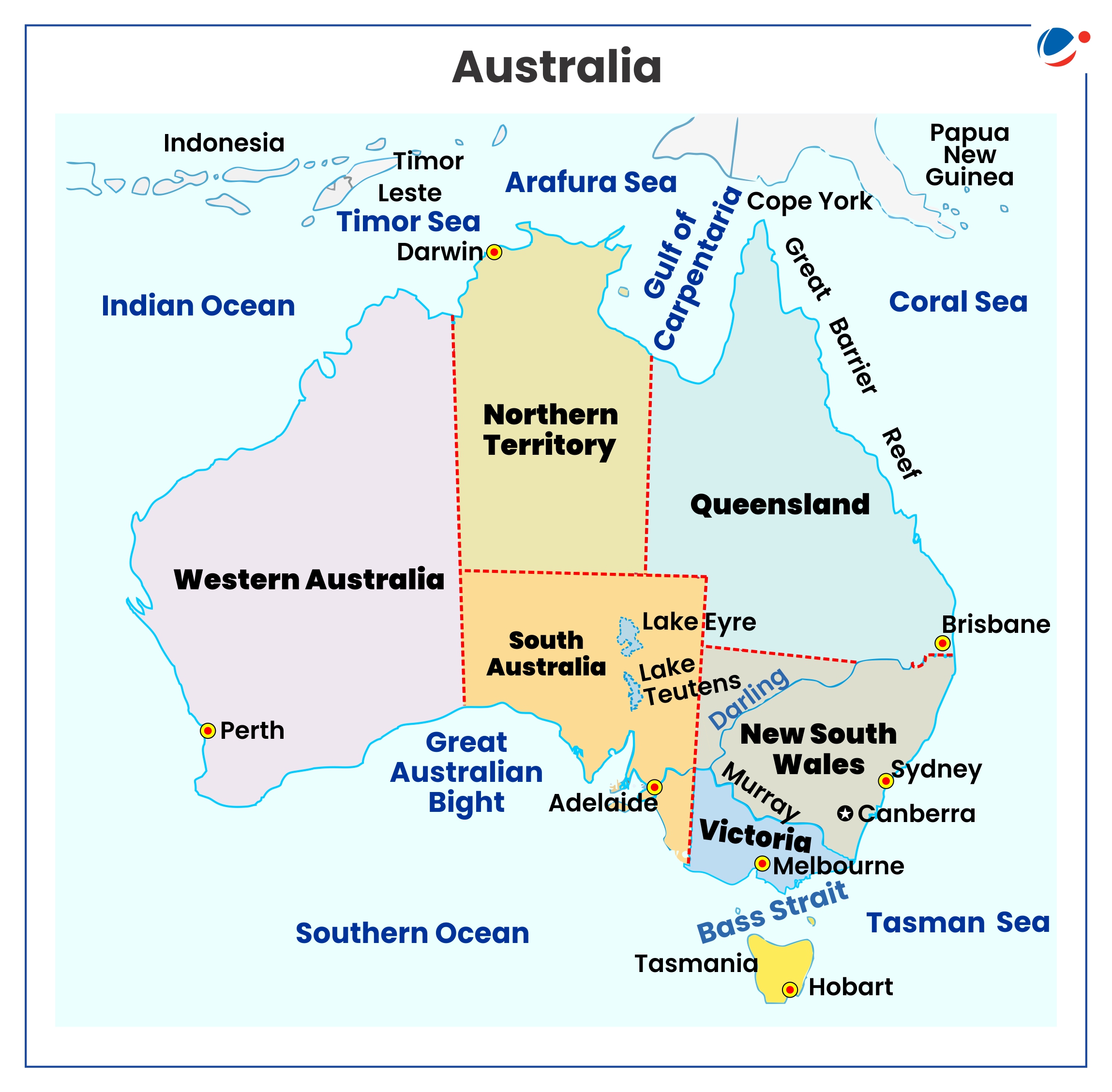Why in the News?
Recently, 2nd India-Australia Annual Summit was held on the sidelines of the G20 Summit in Rio de Janeiro.
Key Highlights of Summit

- Launch of India-Australia Renewable Energy Partnership (REP): To provide the framework for practical cooperation in priority areas like solar PV, green hydrogen, energy storage, etc.
- Australia-India Business Exchange (AIBX) programme: Both sides extended AIBX programme for another four years from 2024.
- AIBX was launched in 2021, to provide businesses with market insights and foster commercial partnerships.
- Agreement to renew and strengthen Joint Declaration on Defence and Security Cooperation in 2025.
Significance of India- Australia bilateral relations
- Strategic Partnership: Both nations signed Comprehensive Strategic Partnership in 2020, and counter China's assertivenessin Indo-pacific through Quad grouping.
- E.g. Australia-India Indo-Pacific Oceans Initiative Partnership (AIIPOIP) helps to shape maritime cooperation in Indo-Pacific.
- Economic and Trade Relations: Bilateral trade crossed $30 billion in 2023, with potential to grow under Economic Cooperation and Trade Agreement (ECTA).
- India is a significant market for Australian coal and LNG, while Australia imports Indian textiles, pharmaceuticals, and IT services.
- Supply Chain Resilience Initiative (SCRI) between India, Australia, and Japan ensure supply chain diversification, and promote fair and sustainable trade practices.
- Critical Minerals: Both sides have signed Critical Minerals Investment Partnership to support Indian investment in Australian critical minerals projects.
- Australia produces almost half of world's lithium, and is second-largest producer of cobalt and the fourth-largest producer of rare earths.
- Green energy Cooperation:
- Australia-India Green Hydrogen Taskforce to enhance green hydrogen production and deployment.
- India-Australia Solar Taskforce will accelerate solar PV deployment and enhance their supply chains.
- Defence Cooperation: Air-to-air Refuelling agreement,Mutual Logistics Support Agreement, defence exercises like AUSTRAHIND, AUSINDEX, Pitch Black enhances interoperability, and address collective security threats effectively.
- Regional and Multilateral Cooperation: Australia's support for India's UN Security Council candidature underscores their shared commitment to global governance reforms.
- Further, both nations actively collaborate on platforms like G-20, and Indian Ocean Rim Association (IORA) for addressing region's challenges.
- People-to-People Ties: India is Australia's largest source of skilled migrants and second-largest source of international students.
- Signing of India-Australia Migration and Mobility Partnership agreement will facilitate movement of students, professionals, researchers, etc.
- Science and Technology: Implementing Arrangement on Cooperation on establishing and operating transportable Telemetry terminals in Cocos Island for Human Space Flight Mission.
Issues in India- Australia relations
- Trade and Market Access: Prolonged Comprehensive Economic Cooperation Agreement (CECA) negotiations, Non Trade Barriers such as sanitary & phytosanitary standards and technical barriers, continue to impede India's exports.
- Pharmaceutical pricing control in Australia, particularly on generics, hampers market access for Indian products.
- Rise of Extremism and Anti-India Activities: Growing influence of Khalistani elements in Australia can strain community ties and have the potential to impact broader bilateral relations.
- For example, incidents like vandalism of Hare Krishna Temple, Shri Shiva Vishnu Temple in Melbourne.
- Stalled Nuclear energy cooperation: Slow progress and no commercial sale of Uranium to India despite signing of 2014 Agreement (Cooperation in Peaceful Uses of Nuclear Energy) limits collaboration in clean energy.
- India rejected uranium supply proposals from Australian companies due to lack of commercial viability.
- Visa Issue: Recent hike in visa fees by Australia (125%) could financially strain Indian students.
Way Forward
- Economic and Trade Partnership: Strengthen ECTA and finalize CECA. Further, promote bilateral investments in critical sectors like clean energy, mining, and technology.
- Strengthening Strategic and Security Ties: Work together in countering traditional and non-traditional security threats, including cybersecurity, maritime security, and counterterrorism.
- Strengthening Cooperation in the Indo-Pacific: Collaborate under regional frameworks such as the ASEAN, and Pacific Islands Forum and supporting development initiatives in small island nations to counterbalance unilateral influences.
- Addressing Extremism: Strengthen bilateral mechanisms such as joint monitoring and intelligence-sharing frameworks and promote community dialogues.
Conclusion
As both countries navigate global economic challenges and geopolitical tensions in the Indo-Pacific, their partnership will benefit both economies, address maritime and strategic security, and promote cultural and people-to-people exchanges.






